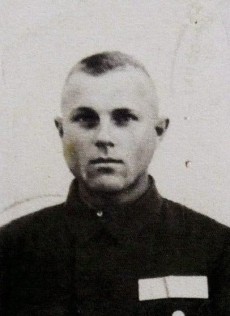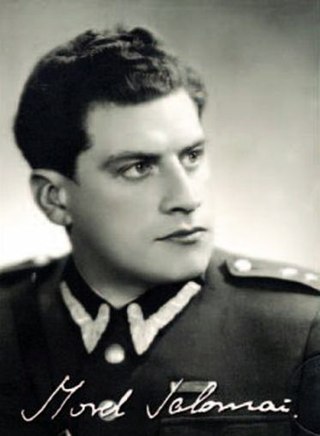Related Research Articles
In jurisprudence, double jeopardy is a procedural defence that prevents an accused person from being tried again on the same charges following an acquittal or conviction and in rare cases prosecutorial and/or judge misconduct in the same jurisdiction. Double jeopardy is a common concept in criminal law. In civil law, a similar concept is that of res judicata. Variation in common law countries is the peremptory plea, which may take the specific forms of autrefois acquit or autrefois convict. These doctrines appear to have originated in ancient Roman law, in the broader principle non bis in idem.
Universal jurisdiction is a legal principle that allows states or international organizations to claim criminal jurisdiction over an accused person regardless of where the alleged crime was committed, and regardless of the accused's nationality, country of residence, or any other relation to the prosecuting entity. Crimes prosecuted under universal jurisdiction are considered crimes against all, too serious to tolerate jurisdictional arbitrage. The concept of universal jurisdiction is therefore closely linked to the idea that some international norms are erga omnes, or owed to the entire world community, as well as to the concept of jus cogens – that certain international law obligations are binding on all states.

Akhmed Halidovich Zakayev is a Chechen statesman, political and military figure of the unrecognised Chechen Republic of Ichkeria (ChRI). Having previously been a Deputy Prime Minister, he now serves as Prime Minister of the ChRI government-in-exile. He was also the Foreign Minister of the Ichkerian government, appointed by Aslan Maskhadov shortly after his 1997 election, and again in 2006 by Abdul Halim Sadulayev. An active participant in the Russian-Chechen wars, Zakayev took part in the battles for Grozny and the defense of Goyskoye, along with other military operations, as well as in high-level negotiations with the Russian side.

John Demjanjuk was a Ukrainian-American who served as a Trawniki man and Nazi camp guard at Sobibor extermination camp, Majdanek, and Flossenbürg. Demjanjuk became the center of global media attention in the 1980s, when he was tried and convicted in Israel after being misidentified as Ivan the Terrible, a notoriously cruel watchman at Treblinka extermination camp. In 1993 the verdict was overturned. Shortly before his death, he was tried and convicted in Germany as an accessory to 28,060 murders at Sobibor.

In an extradition, one jurisdiction delivers a person accused or convicted of committing a crime in another jurisdiction, over to the other's law enforcement. It is a cooperative law enforcement procedure between the two jurisdictions and depends on the arrangements made between them. In addition to legal aspects of the process, extradition also involves the physical transfer of custody of the person being extradited to the legal authority of the requesting jurisdiction.

The Crown Prosecution Service (CPS) is the principal public agency for conducting criminal prosecutions in England and Wales. It is headed by the Director of Public Prosecutions.
The pursuit of Nazi collaborators refers to the post-World War II pursuit and apprehension of individuals who were not citizens of the Third Reich at the outbreak of World War II but collaborated with the Nazi regime during the war. Hence, this article does not cover former members of the NSDAP and their fates after the war.

Salomon Morel was an officer in the Ministry of Public Security in the Polish People's Republic. Morel was a commander of concentration camps run by the NKVD and communist authorities until 1956.
Barker v. Wingo, 407 U.S. 514 (1972), was a United States Supreme Court case involving the Sixth Amendment to the U.S. Constitution, specifically the right of defendants in criminal cases to a speedy trial. The Court held that determinations of whether or not the right to a speedy trial has been violated must be made on a case-by-case basis, and set forth four factors to be considered in the determination.
In law, rendition is a "surrender" or "handing over" of persons or property, particularly from one jurisdiction to another. For criminal suspects, extradition is the most common type of rendition. Rendition can also be seen as the act of handing over, after the request for extradition has taken place.
In the United States, extradition law is a collection of federal laws that regulate extradition, the formal process by which a fugitive found in the United States is surrendered to another country or state for trial, punishment, or rehabilitation.

Helena Wolińska-Brus was a military prosecutor in postwar communist Poland with the rank of lieutenant-colonel (podpułkownik), involved in Stalinist regime show trials of the 1950s. She has been implicated in the arrest and execution of many Polish World War II resistance fighters, including significant figures in Poland's wartime Home Army.
Senior District Judge Timothy Henry Workman is a retired British judge, a long-term stipendiary magistrate who served as Senior District Judge for England and Wales.

Immunity from prosecution is a doctrine of international law that allows an accused to avoid prosecution for criminal offences. Immunities are of two types. The first is functional immunity, or immunity ratione materiae. This is an immunity granted to people who perform certain functions of state. The second is personal immunity, or immunity ratione personae. This is an immunity granted to certain officials because of the office they hold, rather than in relation to the act they have committed.

Andrey Konstantinovich Lugovoy, also spelled Lugovoi, is a Russian politician and businessman and deputy of the State Duma, the lower house of the Russian parliament, for the LDPR. He worked as a KGB bodyguard and as head of "Ninth Wave", a security firm.
Ricardo Miguel Cavallo is a retired Argentine naval lieutenant commander. Under the name Miguel Angel Cavallo, he served as an officer of the National Reorganization Process, which ruled Argentina from 1976 to 1983. On the basis of his activities in secret G-322 operations, he was later charged with kidnapping, torture, and/or murder, of hundreds of political dissidents.
The Nangar Khel incident, sometimes called the Nangar Khel massacre, took place in the Afghan village of Nangar Khel on August 16, 2007. A few hours after an insurgent IED ambush which damaged Polish wheeled armored vehicle, a patrol of Polish soldiers from the elite 18th Airborne-Assault Battalion taking part in the International Security Assistance Force opened heavy machine gun and 60 mm mortar fire at the area of the village. The attack resulted in the deaths of 6 civilians, including a pregnant woman and 3 children, and seriously injured 3 other women.
Bohdan Koziy was a Ukrainian suspected war criminal and allegedly a member of the Ukrainische Hilfspolizei, a Nazi German mobile police force that operated in the General Government on July 27, 1941. The name of the unit reflected its geographic jurisdiction.

On March 10, 1977, 43-year-old film director Roman Polanski was arrested and charged in Los Angeles with six offenses against Samantha Gailey, a 13-year-old girl: unlawful sexual intercourse with a minor, rape by use of drugs, perversion, sodomy, a lewd and lascivious act upon a child under the age of 14, and furnishing a controlled substance to a minor. At his arraignment, Polanski pleaded not guilty to all charges but later accepted a plea bargain whose terms included dismissal of the five more serious charges in exchange for a guilty plea to the lesser charge of engaging in unlawful sexual intercourse with a minor.

The Constitution itself anchors the role of the Director of Public Prosecutions in Kenya. The Office of the Director of Public Prosecutions (ODPP) is the National Prosecuting Authority in Kenya. The Constitution mandates it to prosecute all criminal cases in the country.
References
- ↑ ""Materiał dowodowy jest niewystarczający, by uznać, że Mazur dopuścił się zarzucanego mu przestępstwa"".
- ↑ U.S. District Court for the Northern District of Illinois, Eastern Division. In the matter of Extradition of Edward Mazur Archived 2011-06-17 at the Wayback Machine Magistrate Judge Arlander Keys, July 20, 2007
- ↑ Whose Side is Uncle Sam on? Archived 2007-10-25 at the Wayback Machine Chris C. Gair, Legal Times, Vol. XXX, No. 37, Sept 10, 2007
- ↑ "Prokuratura umorzyła postępowanie wobec Edwarda Mazura".